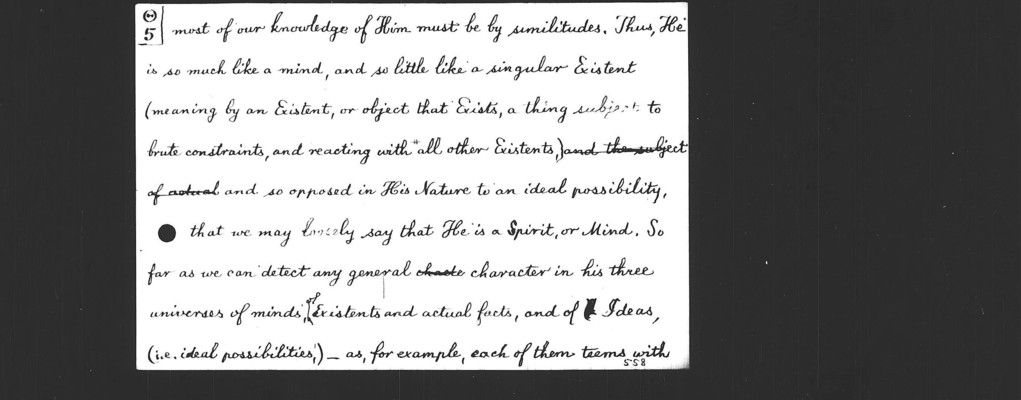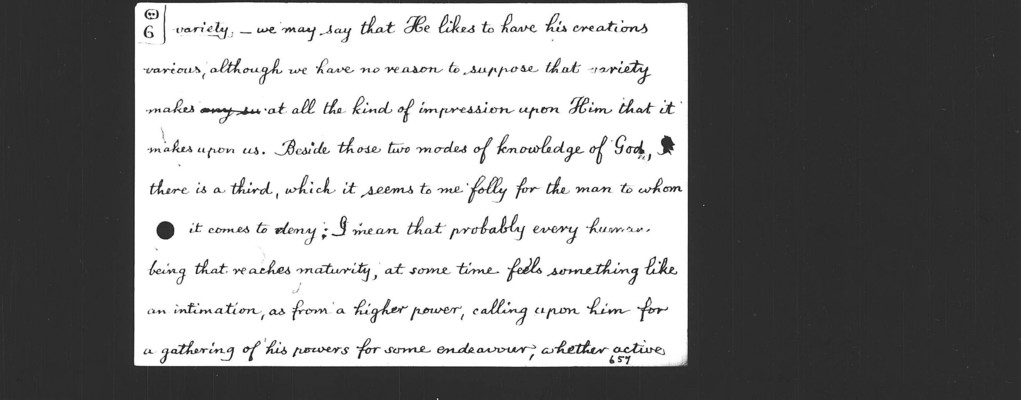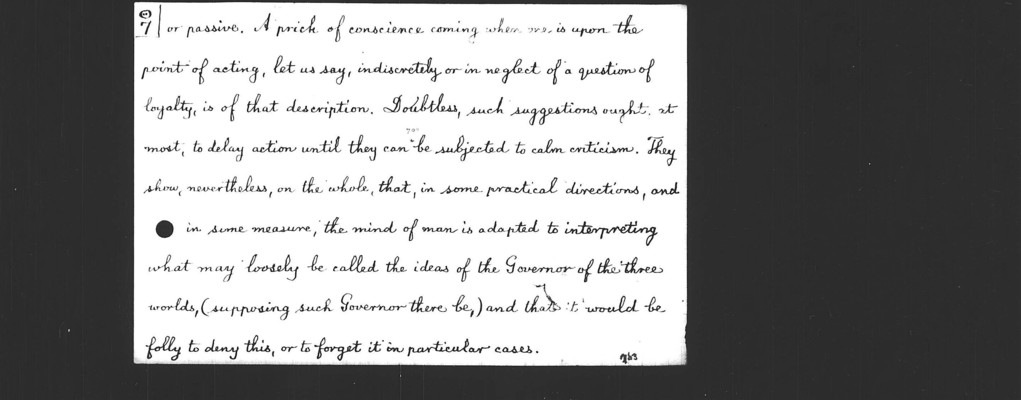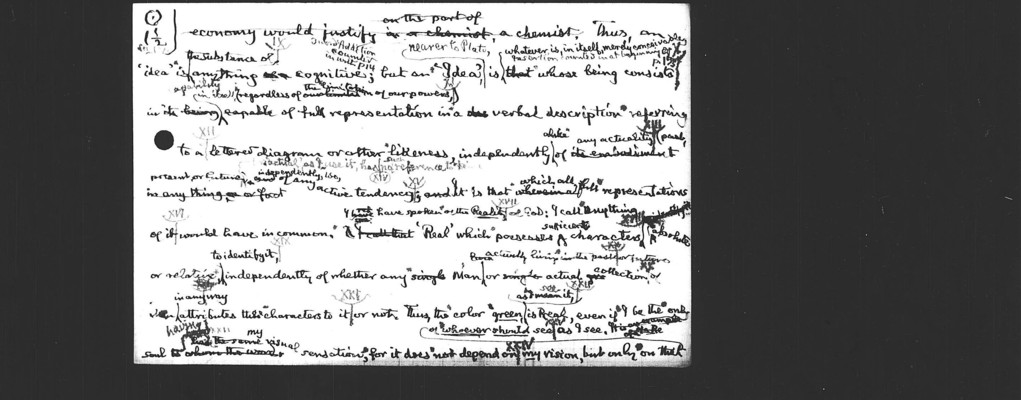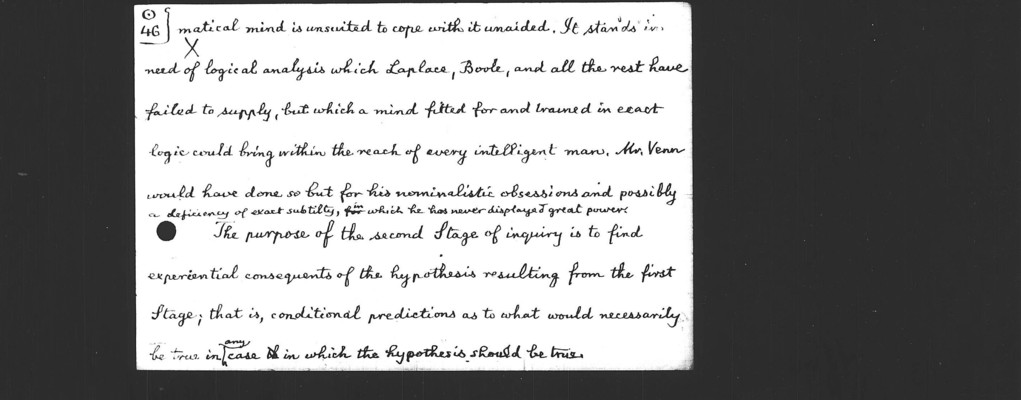Pages
26
O..5
most of our knowledge of Him must be by similitudes. Thus, He is so much like a mind, and so little like a singular Existent (meaning by an Existent, or object that Exists, a thing subject to brute constraints, and reacting with all other Existents,) and so opposed in His Nature to an ideal possibility, that we may loosely say that He is a Spirit, or Mind. So far as we can detect any general character in his three universes of minds, of Existents and actual facts, and of Ideas, (i.e. ideal possibilities,)—as, for example, each of them teems with
27
O..6
variety,—we may say that He likes to have his creations various, although we have no reason to suppose that variety makes at all the kind of impression upon Him that it makes upon us. Beside those two modes of knowledge of God, there is a third, which it seems to me folly for the man to whom it comes to deny: I mean that probably every human being that reaches maturity, at some time feels something like an intimation, as from a higher power, calling upon him for a gathering of his powers for some endeavour, whether active
28
O..7
or passive. A prick of conscience coming when one is upon the point of acting, let us say, indiscretely or in neglect of a question of loyalty, is of that description. Doubtless, such suggestions ought, at most, to delay action until they can be subjected to calm criticism. They show, nevertheless, on the whole, that, in some practical directions, and in some measure, the mind of man is adapted to interpreting what may loosely be called the ideas of the Governor of the three worlds, (supposing such Governor there be,) and that it would be folly to deny this, or to forget it in particular cases.
29
O.1-1/2
Thus, an 'idea' is the substance of anything cognitive; but an 'Idea,' is whatever is, in itself, merely conceivable, whose being consists in capability in itself, (regardless of the limitation of our powers,) of full representation in a verbal description referring to a lettered diagram or other likeness, independently of any actuality (past, present, or future); 'actual,' as I use it, has no such reference to time; independently, too, of any active tendency. It is that which all full representations of it would have in common. I have spoken of the Reality of God: I call anything 'Real' which possesses sufficient characters, absolute or relative, to identify it, independently of whether any Man actually living or actual collection of Men in any way attributes these characters to it or not. Thus, the color green, as I see it, is Real, even if I be the only soul having my visual sensation; for it does not depend on my vision, but only on that of whoever should see as I see.
30
O.46
matical mind is unsuited to cope with it unaided. It stands in need of logical analysis which Laplace, Boole, and all the rest have failed to supply, but which a mind fitted for and trained in exact logic could bring within the reach of every intelligent man. Mr. Venn would have done so but for his nominalistic obsessions and possibly a deficiency of exact subtilty, in which he has never displayed great power.
The purpose of the second Stage of inquiry is to find experiential consequences of the hypothesis resulting from the first Stage; that is, conditional predictions as to what would necessarily be true in any case in which the hypothesis should be true.
